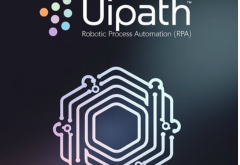As Artificial Intelligence (AI) becomes the strategic cornerstone of enterprise transformation, CIOs across industries are redefining their expectations—not just from technology vendors, but also from their channel partners. For system integrators, VARs, managed service providers, and ISVs, this shift represents both a challenge and an unprecedented opportunity to reposition as strategic advisors in the AI-led enterprise era.
CIOs are no longer satisfied with AI pilots or experimental deployments. They expect end-to-end, production-grade AI solutions that deliver measurable business outcomes—from faster time-to-market and reduced operating costs to improved customer experience and enhanced workforce productivity. This shift means that channel partners must evolve beyond infrastructure provisioning to become enablers of intelligent business transformation.
A major trend emerging in 2025 is the demand for horizontal AI scalability. CIOs want AI models that are not confined to a single use case or department. Channel players must now help clients scale AI solutions across geographies, functions, and verticals—be it predictive analytics in retail, GenAI-driven knowledge management in healthcare, or AI-assisted financial reporting in BFSI. This calls for deep domain understanding, repeatable deployment templates, and robust integration with platforms like SAP, Salesforce, Workday, and Microsoft 365.
With the widespread adoption of Generative AI, partners are seeing rising interest in deploying private LLMs, industry-specific copilots, and secure enterprise chatbots. CIOs expect these tools to be implemented with guardrails—ensuring compliance, data protection, and transparency. Channel partners can add tremendous value here by offering deployment services, API integrations, data masking solutions, and managed AI operations tailored to each client’s regulatory and security posture.
AI governance is another area where channel partners can step in. With regulations like the EU AI Act and India’s DPDP Act gaining traction, CIOs need partners who can help implement responsible AI frameworks—including model traceability, access control, usage monitoring, and bias detection. Vendors may provide the tools, but it is the channel ecosystem that ensures correct configuration, policy alignment, and localised compliance.
The conversation around AI has also reached the security desk. As AI becomes integrated into infrastructure, it becomes a target and a tool in the cybersecurity landscape. CIOs are increasingly seeking partners who can secure ML pipelines, protect AI assets, and audit model behaviors. For MSSPs and cybersecurity VARs, this is a greenfield to expand into AI security assessments, SOC automation with AI, and AI-based threat modeling.
CIOs are also vocal about one critical issue: they don’t want a fragmented tech stack. They expect partners to design solutions that interoperate across cloud, on-prem, and edge environments—especially in sectors like manufacturing, logistics, and healthcare. This opens the door for partners to leverage hybrid AI models, offer orchestration layers, and build connectors that make multi-vendor environments work seamlessly.
Furthermore, AI is shaping how the workforce interacts with technology. Enterprises are investing in employee-facing AI solutions—like AI-driven upskilling platforms, content generators, and code copilots. Channel partners have an opportunity to resell, customize, and manage these tools as part of digital workplace offerings, enabling a human-machine synergy that boosts productivity and morale.
From a go-to-market perspective, solution providers must now lead with outcomes, not SKUs. CIOs expect partners to understand their business goals and propose AI solutions aligned to KPIs—be it in reducing fraud, improving SLAs, or accelerating onboarding. Partners who build industry-specific AI playbooks and bundle services with measurable impact will gain mindshare faster.
Vendors, too, are recalibrating their channel programs. Many are expanding incentives, training, and co-selling frameworks around AI use cases, especially those related to GenAI, AI Ops, and industry verticalization. Smart partners will tap into these programs to build repeatable solutions and recurring revenue models, differentiating themselves in a crowded market.
To serve the modern CIO, the channel must undergo its own transformation—from product-centric selling to consultative AI enablement. Partners must develop capabilities in data engineering, AI governance, vertical AI modeling, and cloud-native development. Certifications, advisory services, and AI labs are becoming crucial investments for forward-thinking partners.
In summary, the AI wave has moved from exploration to execution. CIOs are looking for partners who can translate AI potential into performance—and they’re willing to invest in relationships that offer vision, velocity, and value. For the channel, this is the moment to step up, lead from the front, and help enterprises unlock AI’s full promise.
Partner Takeaway:
The future belongs to channel partners who deliver not just AI tools, but intelligent outcomes. Build industry relevance, ensure governance, prioritize security, and bundle AI with business impact—and CIOs will keep you in the boardroom.
 Latest Technology News Today – Get Latest Information Technology Updates and Services Latest Technology News Today – Get Latest Information Technology Updates and Services
Latest Technology News Today – Get Latest Information Technology Updates and Services Latest Technology News Today – Get Latest Information Technology Updates and Services 









